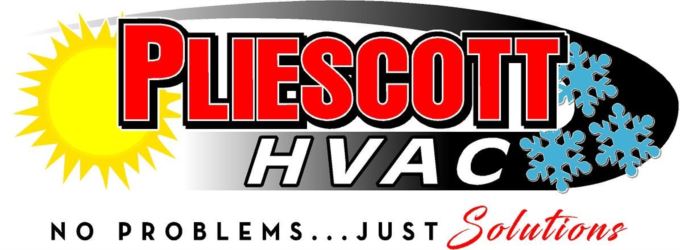Purchasing your first home is thrilling. You’re probably trying to keep track of a dozen things or more about making the right choice. We believe that gaining insight into your potential new HVAC system is vital. The property’s HVAC system represents a substantial investment and potential source of long-term costs, which is why due diligence is important for first-time homebuyers.
In this guide, we’ll share seven tips for learning everything you can about a home’s heating and cooling setup. And if you want a deeper opinion from the experts, feel free to call Pliescott HVAC Services LLC. Our seasoned technicians can weigh in on your options with industry insights you won’t find elsewhere.
1. What Type of HVAC System Is It?
Start by determining what specific HVAC system the home has. Furnaces generally last longer than air conditioners, and some of the latest types of HVAC equipment like heat pumps boast average life spans longer than ever. Tracking down the make and specific model gives you a clear understanding of how much it might cost in upkeep over time.
2. How Old Is the Current HVAC System?
It also helps to learn how old the HVAC system is when you’re considering a potential new home. On average, HVAC systems should survive for around 10-12 years. Having the knowledge of when it was installed helps you anticipate future maintenance needs or considerations if it might break down. Older systems may be more vulnerable to problems, so budgeting for a replacement unit might be needed faster than expected.
3. Is the Warranty Still in Effect?
Check if the HVAC system is still under warranty. If it is, this can lower maintenance costs. HVAC warranties should take care of parts and labor, but it’s important to note that details will vary. Review any terms that seem confusing to ensure you understand your coverage and any possible out-of-pocket costs.
4. Does the System Have a Documented Maintenance History?
Don’t forget to check the maintenance history of the HVAC system, if that information is accessible. This service history can reveal if the system constantly broke down or how often maintenance is performed. You should at least try to track down a history of key tasks like filter changes, which means it enjoyed more regularly scheduled tune-ups.
5. Are You Aware of the System’s Energy Efficiency Ratings?
Finding a home that features an HVAC system with great energy efficiency can lead to lower utility bills and a smaller environmental impact. Locate the seasonal energy efficiency ratio (SEER) ratings for air conditioning and the annual fuel utilization efficiency (AFUE) for furnaces. High SEER ratings mean more efficient cooling throughout the season, while high AFUE ratings indicate that the fuel is efficiently converted into useable heat.
6. Have You Noticed Signs of Problems During Your Inspection?
Even without heating and cooling expertise, you should still inspect the HVAC system on your own. Watch closely for signs of problems that might have been overlooked. This can mean bizarre noises, unequal airflow and attempts to hide any visible damage.
7. Have You Asked Your Local HVAC Professional?
If you’re not quite sure about the overall state of the HVAC system, it’s never a bad idea to get a professional opinion from experienced HVAC technicians. They will be much more likely to catch things you may not know about, including leaks in the refrigerant, damage to the wiring or damaged ductwork.
A Chat with Pliescott HVAC Services LLC Helps Take the Stress Out of Your Home-Buying Journey
Finding your first home should be thrilling, and Pliescott HVAC Services LLC will do everything possible to ensure it stays that way. Get in touch with us at 410-228-4822. We can discuss how our HVAC services ease your mind, giving you what you need to make an offer with confidence.
